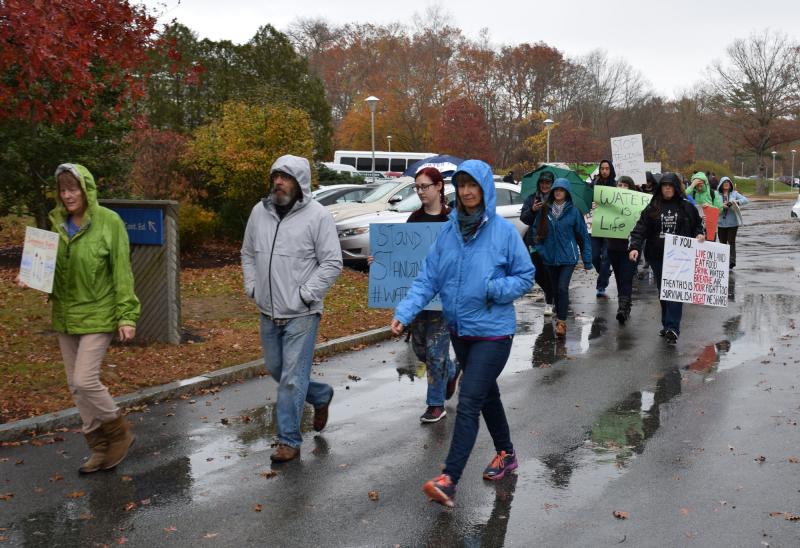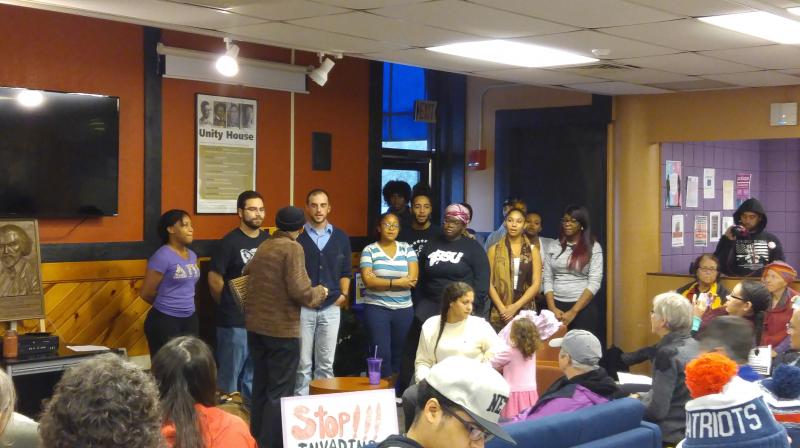Protest against oil pipeline draws 50 marchers
The quiet hallways across the University of Massachusetts Dartmouth gave way to the sound of drumbeats and chanting during a solidarity march to protest a proposed oil pipeline .
About 50 people gathered at the university’s Frederick Douglass Unity House on November 15 with signs, banners, and drums to show support for the people of Standing Rock, North Dakota, who have been protesting against energy company Energy Transfer Partners’ efforts to install a pipeline through an Indian reservation.
The protest march was organized by Morgan James Peters, a member of the Mashpee Wampanoag tribe and a professor at the university. He was inspired by a call from Standing Rock Sioux leaders for a “National Day of Action” to raise awareness of the pipeline.
A flyer identified colonialism, laws that treat Native Americans unfairly, and issues of racism, classism, and gender violence as points of protest.
“All of our home communities are what’s happening in Standing Rock, and what is happening in Standing Rock happens in our communities,” Peters said.
He drew parallels to allegations of police using excessive force against tribal members at Standing Rock to similar incidents he said happened in Mashpee and Mattapoisett. He also connected the discovery of cancer clusters in New Bedford’s poorest neighborhoods to worries that environmental damage could cause sickness in North Dakota.
“The pipeline issue at Standing Rock is just one of the many atrocities and acts of environmental racism committed against Native American People,” Peters said in a press release.
The protest drew support from students and the public, with people traveling from as far away as Cambridge to participate.
“I want to support the Dakota people and all of the people of Earth, as I believe in people, not profits,” said Jo Emerald, who came from Taunton to attend the protest after receiving a text message from an advocacy group that supported Bernie Sanders for President.
Others, like Rachel Wyon, attended with an advocacy group. Mothers Out Front aims to increase climate change awareness. The group had previously opposed a natural gas pipeline planned to run through West Roxbury, and Wyon said she felt that the Dakota Access pipeline would not only bring environmental dangers, but also contribute to the erosion of Native American rights.
After marching through campus, protesters convened in the Unity House for a performance of traditional African and Native American music, poetry, and discussions on Native American discrimination and oppression.

















